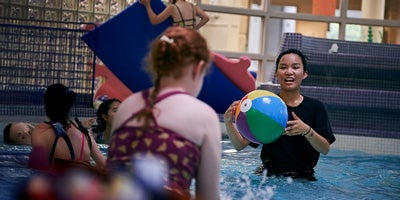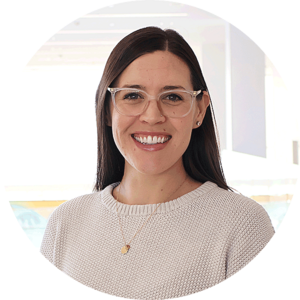Recreation and Leisure Studies

Get a job you love while making peoples' lives better
Did you know 95 percent of people engage in leisure or sport activities daily? Recreation is essential for our health – it’s how we have fun, get active, and connect with others!
Choose from one of three exciting majors when you apply: Recreation, Leadership, and Health; Sport and Recreation Management; or Therapeutic Recreation. Once admitted, you’ll receive an offer to Recreation and Leisure Studies, then jump right into your major starting in first year.
Each of the three majors is flexible, allowing you to customize your degree to your interests. You’ll build relevant skills and experience through co-op, hands-on assignments, and opportunities to venture out of the classroom and into the real world.
In this small, tight-knit program, don’t be surprised if profs know you by name, and you make lifelong friends with your classmates.
Choose from three majors
You'll apply to Recreation and Leisure Studies and then choose one of three majors starting right in first year. Check out seven ways to know if Recreation at Waterloo is for you to learn more.
Faculty:
Faculty of Health
Degree:
Bachelor of Arts in your chosen major

Recreation, Leadership, and Health
Hone your leadership skills while examining the role that recreation plays in the health of people and their communities.

Sport and Recreation Management
Gain transferrable business skills combined with expertise in planning, managing, and evaluating sport and recreation programs and events.

Therapeutic Recreation
Learn how to create, implement, and assess activities that support cognitive, physical, emotional, and social well-being in clinical and community settings.
First department of recreation in Canada. We've been leaders since day one and are dedicated to ensuring you gain the most relevant, up-to-date knowledge. Our graduates' success over the past 50 years has built our reputation for educating the health care leaders of tomorrow.
Get hands-on experience in class. Benefit from classes that include guest speakers, community outreach events, case studies, and real-life projects (such as conducting an accessibility assessment on campus or in a public building).
Admission requirements
Ontario students: six Grade 12 U and/or M courses including
- Any Grade 12 U English (minimum final grade of 70% is required)
Admission average: Low 80s (co-op and regular)
Not studying in Ontario? Search our admission requirements.
How to apply
Apply directly to this program on your application and select your subject of major interest.
Get information about programs, applying, and more!
Subscribe to our monthly newsletter
Get valuable updates and tips sent straight to your inbox!

Connect with us
Questions about courses, programs, requirements, or careers?
Please contact Clare Stevens, our Faculty of Health recruitment co-ordinator who can answer any questions you have.
From the Missing Manual
The Department of Recreation and Leisure Studies offers fantastic courses in a variety of topics. Read our article on...